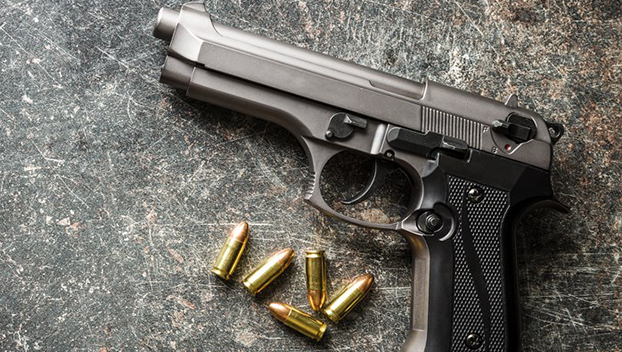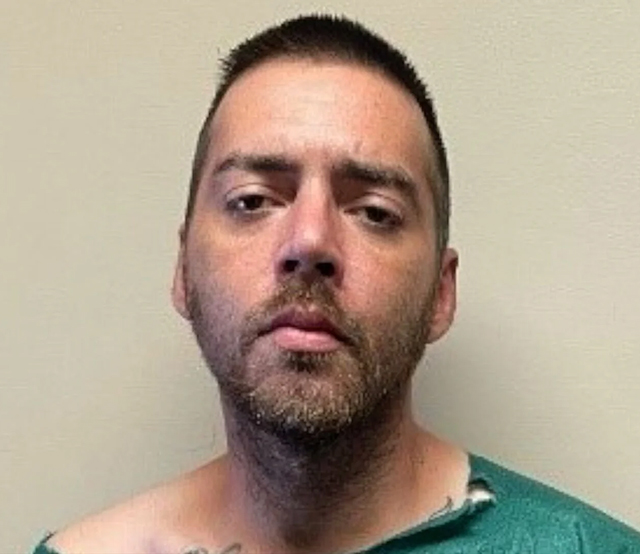‘You can’t run. It’s everywhere.’ Here’s what Mississippi teens, adults say about gun violence
Published 8:15 am Sunday, May 23, 2021
One by one, Gulfport Councilwoman Ella Holmes-Hines asked the children gathered around her what they want to be when they grow up.
“A ballerina.”
“A doctor.”
“A gymnastics girl.”
“A policeman.”
Holmes-Hines was a speaker at last weekend’s Stop the Violence block party in Gulfport, organized in response to recent shootings around the city. Many of the children wore T-shirts that said Stop the Violence; some were so young that the shirts grazed their feet.
“Every child has a dream,” Holmes-Hines said. “It is up to us… that we protect each and everyone of them.”
The event included a memorial service for more than 70 people killed with guns in Gulfport since 2014. Latasha Bryant, a co-organizer of the block party, lost her son Keon Bryant in a homicide in 2015.
“We’re trying to be a little more proactive instead of reactive,” she said in a speech welcoming attendees to the event.
She and co-organizer Bobby Hudson III took turns reading 70 names. They included Denise Fayard, who was killed by her ex-husband in 2015, and 25-year-old Jeremiah Harper, who was killed at a Gulfport nightclub in 2018.
Many victims were teenagers. Robert Tatum, 18, was killed at a graduation party last May. Imani Rogers, 16, was a student at West Harrison High School when she was killed in 2019. Teraye Preson, 18, and Juan Reginald Harvey Jr., 19, were killed in a double homicide in April that sparked a community outcry for action against gun violence, especially among teens.
Shootings and gun deaths in Gulfport, and across the state, are far from a new problem. But some community members said they feel gun violence has worsened in recent years. In 2019, Mississippi had the country’s second-highest rate of gun deaths, after Alaska. In 2005, Mississippi’s rate was lower than that of six other states.
And while other kinds of crimes lessened during the coronavirus pandemic, homicide rates have been high across the country.
Harrison County’s gun death rate is 16.71 per 100,000 people, lower than the statewide rate of 24.2, but higher than the national rate of 11.86, according to the Educational Fund to Stop Gun Violence.
In Mississippi, young Black men suffer disproportionately from gun violence: according to the Educational Fund, Black teens and men ages 15-34 suffer a firearm homicide rate 10 times higher than that of white males of the same age.
Gulfport Police Chief Chris Ryle and spokesman Sgt. Jason DuCré both attended the block party but declined to talk with the Sun Herald about the department’s approach to gun crimes and possible solutions for gun violence in the city.
“Not right now,” Ryle said.
“Not today,” DuCré said.
Last Sunday morning, the Gulfport Police Department reported it was investigating two separate shootings that left two people in critical condition.
Here are reflections on gun violence and potential solutions from some attendees of the block party.
LATASHA BRYANT, 45
Keon Bryant had graduated from high school and was studying to become an electrician. In 2015, his life ended in an instant, during what police said was a drug deal that turned into a gun fight. He was 19 years old.
Latasha Bryant founded a support group for parents who have lost their children in homicides, and launched the KRB Foundation (named for her son’s initials) to memorialize victims of homicide.
The block party was one more effort “to keep the names of these homicide victims, that they did not die in vain,” Latasha Bryant said.
Bryant said more investment in recreational activities and job opportunities for young people could be part of the solution, along with reducing young people’s access to firearms.
“All of these result from a 10-second decision that changes the life of everyone forever,” she said.
For now, she thinks the problem is getting worse. Juan Reginald Harvey, one of the teen victims in April’s double homicide, graduated from high school with her other son.
“He was a very good kid,” she said. “That kind of crumbled my heart.”
JEFFERY HILL, 44
Hill’s brother was 21 years old when he was shot and killed.
“When my brother got killed, I picked up a gun,” Hill said. “It was a domino effect, because I wanted someone to feel what my family felt.”
Hill spent 22 years in prison for manslaughter. After leaving prison about four years ago, he started an organization called Better Weigh Your Options to encourage young people to think about their futures.
Surveying the neighborhood around the Isiah Fredericks Community Center, Hill could envision resources that might help keep people safe. Why not open a GED center for everyone who wants to get one? What about a skating rink, more playgrounds, free sports leagues?
“Y’all got money to fund the police department, the fire department, but y’all don’t have money to help apply to these communities you’re arresting people in,” he said.
“You can’t just focus on the police,” he continued. “What is the budget for giving a child something to do?”
MARISSA HALL AND ANNIKA STUBBS ALLEN
When Annika Stubbs Allen was growing up on the Coast, she “lived in a pool, all summer long.”
Things seem different now.
“The normal activities, they’re not there,” she said.
The City of Gulfport has just one public swimming pool. It’s located on the east end of town, in a census tract with a median income of just over $50,000 annually. The Isiah Fredericks Community Center sits in a census tract where the median income is just under $17,000, the lowest in the city.
Marissa Hall, who coaches volleyball, has seen her students affected by gun violence directly and indirectly. When she sees shootings on the news, she knows her students can’t ignore it.
Allen said Juan Reginald Harvey had belonged to her church. Harvey’s brother TyJuan Johnson was shot and killed in 2017, when Johnson was 17.
Allen said she hopes all adults will talk with kids in their community.
“It takes a village to raise a child,” she said. “The village has fallen short.”
Accepting the status quo is impossible, Hall said.
“For me as an educator, I have to stay optimistic,” Hall said.
DOUGLAS JACKSON, 15, AND JONATHAN BALSER, 16
Jackson’s dad is a police officer, and he worries about him coming home safely.
Balser’s dad always wanted to be a police officer, but his mom always said she was too worried he would get shot on the job.
Balser said he has lost a cousin and a friend to shootings in Jackson and Houston, Texas.
“I came to support them,” he said.
The students at Harrison Central High School said it was hard to think of a solution.
“I don’t know,” Balser said. “The way people are today, nothing’s going to stop them.”
LISA KEYES, 46
A few years ago, when Keyes’ son was a teenager, her home became a target.
“I had my house shot up, my car shot up during his school years,” she said.
Eventually, she packed up her family and moved to a different neighborhood.
“But you can’t run,” she said. “It’s everywhere.”
She said she thinks gangs are a major factor, and that parents should pay careful attention to what their kids are doing.
Her son, now 20, is doing well. He moved to Oklahoma.
“I’d rather see him off working than here not living a good life,” she said.
LESTER COLEMAN AND D’ANDRE JEFFERSON
Coleman, the coach of club basketball team Gulfport Elite Heat, brought 10 of his players to the block party.
“They had some speakers here they needed to hear,” Coleman said.
He said he hoped the event would also show his players how to be young leaders in their communities.
Over his 30 years as a basketball coach, he has worked with students who lost siblings to gun violence, including D’Andre Jefferson.
In 2016, Jefferson’s brother Nygel D. Poole, 16, was shot and killed by another teenager.
“It really hurt me,” said Jefferson, now 22. “It affected my outlook — how I looked at everything.”
Jefferson said he thinks young people in Gulfport need more “positive activity,” like affordable sports programs in their neighborhoods.
“And stuff like this, too,” he said. “Family day at the park.”






